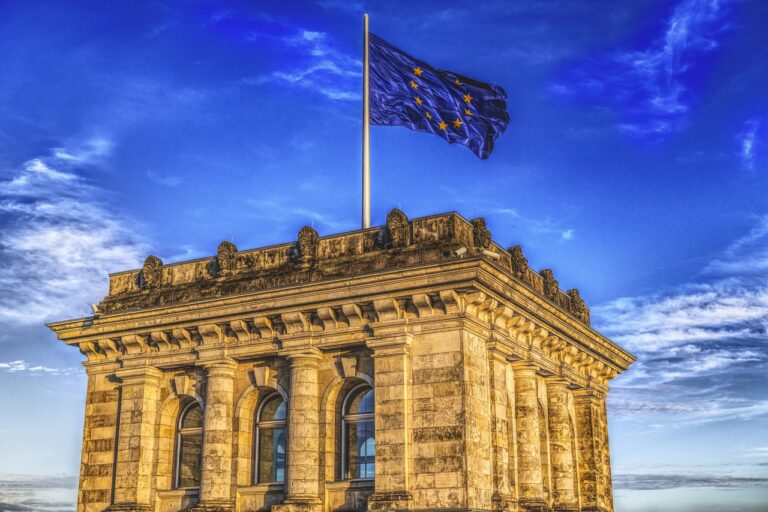Implementing Multi-factor Authentication in Political Software
11xplay pro login, tigerexch247 live, betbook.com:Implementing Multi-factor Authentication in Political Software
In recent years, political software has become a crucial tool for campaigns, organizations, and governments to engage with constituents, manage data, and streamline operations. However, with the rise of cyber threats and data breaches, it is more important than ever to prioritize security measures within political software. One effective way to enhance security is by implementing multi-factor authentication (MFA) to verify user identities.
What is Multi-factor Authentication?
Multi-factor authentication is a security process that requires users to provide multiple forms of verification to access an account or system. Typically, MFA involves a combination of something the user knows (such as a password), something the user has (such as a mobile device), and something the user is (such as a fingerprint or facial recognition). By adding these additional layers of security, MFA significantly reduces the risk of unauthorized access and data breaches.
The Importance of MFA in Political Software
Political software often contains sensitive information, such as voter data, campaign strategies, and donor information. In the wrong hands, this data can be exploited for malicious purposes, such as identity theft, financial fraud, or even election interference. By implementing MFA in political software, organizations can effectively protect their data and secure their systems against cyber threats.
Benefits of Implementing MFA in Political Software
1. Enhanced Security: MFA adds an extra layer of protection by requiring users to provide multiple forms of verification. This makes it significantly harder for hackers to gain unauthorized access to sensitive information.
2. Protection Against Credential Stuffing: Credential stuffing is a common cyber attack where hackers use stolen usernames and passwords to access multiple accounts. MFA helps prevent credential stuffing by requiring additional verification beyond just a password.
3. Compliance with Regulations: Many governments and regulatory bodies require organizations to implement strong security measures to protect sensitive data. By implementing MFA, political software users can demonstrate compliance with these regulations and avoid potential fines or penalties.
4. Increased User Trust: With the rising concerns about data privacy and security, users want reassurance that their information is protected. By implementing MFA, political software organizations can build trust with users and stakeholders by demonstrating a commitment to security.
Implementing MFA in Political Software
1. Assess Your Security Needs: Before implementing MFA, it’s essential to assess your security needs and identify potential vulnerabilities in your political software. Conduct a security audit to evaluate your current practices and determine where MFA can be most beneficial.
2. Choose the Right MFA Solution: There are several MFA solutions available, ranging from SMS codes to biometric authentication. Consider factors such as usability, cost, and compatibility with your existing systems when choosing an MFA solution for your political software.
3. Implement MFA in Phases: To minimize disruption and ensure a smooth transition, consider implementing MFA in phases. Start with high-risk users or sensitive data access points and gradually expand MFA to other areas of your political software.
4. Educate Users: User education is critical for the successful implementation of MFA. Clearly communicate the purpose of MFA, provide instructions on how to set up and use MFA, and offer support to users who may have questions or issues.
5. Monitor and Adjust: After implementing MFA, regularly monitor its effectiveness and make adjustments as needed. Keep abreast of new security threats and technologies to ensure that your MFA solution remains robust and up-to-date.
6. Stay Committed to Security: Security is an ongoing process that requires continuous effort and vigilance. Encourage a culture of security within your organization and prioritize regular security updates, training, and audits to maintain the integrity of your political software.
FAQs
Q: Can MFA be bypassed by hackers?
A: While no security measure is foolproof, MFA significantly reduces the risk of unauthorized access by adding extra layers of verification. However, it is essential to stay informed about potential vulnerabilities and take proactive measures to protect your political software.
Q: Is MFA easy to use for users?
A: MFA solutions vary in complexity, but many options are user-friendly and require minimal effort from users. By providing clear instructions and support, organizations can help users easily set up and use MFA to enhance security.
Q: How does MFA protect against data breaches?
A: MFA protects against data breaches by requiring multiple forms of verification beyond just a password. Even if a hacker manages to steal a user’s credentials, they would still need additional verification to access sensitive information, reducing the risk of unauthorized access.
Q: Is MFA expensive to implement?
A: The cost of implementing MFA can vary depending on the solution chosen and the size of the organization. However, the benefits of enhanced security and compliance with regulations often outweigh the initial investment in MFA implementation.
In conclusion, implementing multi-factor authentication in political software is a crucial step towards enhancing security, protecting sensitive data, and building trust with users. By following best practices, choosing the right MFA solution, and staying committed to security, political software organizations can effectively safeguard their systems against cyber threats and data breaches.







